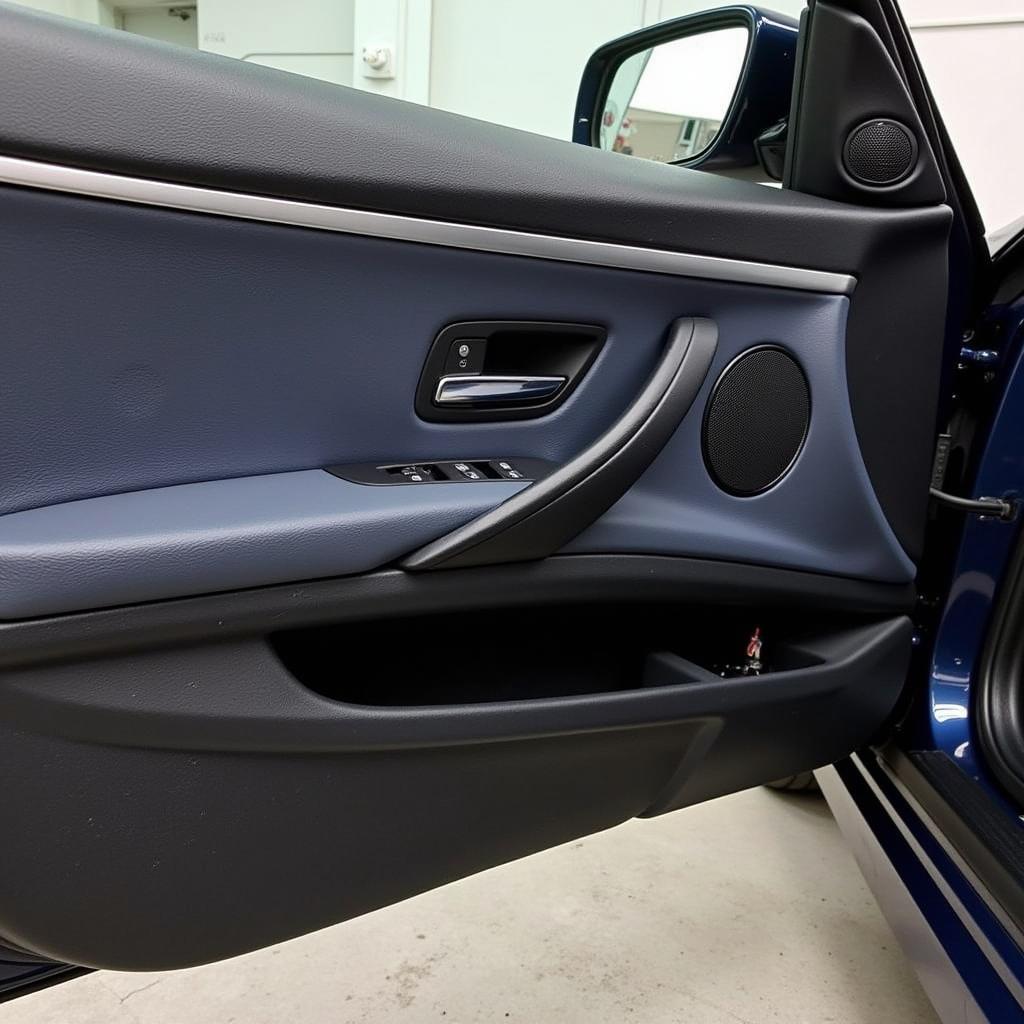Few sounds strike fear into a BMW owner’s heart like a persistent engine knocking. This ominous noise often signals a problem that needs immediate attention to prevent costly engine damage. Whether you’re a DIY enthusiast or prefer to leave car repairs to the professionals, understanding the potential causes and solutions for a BMW engine knocking sound can be invaluable.
Understanding Your BMW Engine
Before diving into the causes of a knocking sound, it’s helpful to understand the basics of your BMW engine. Most modern BMWs are equipped with powerful and efficient engines that utilize advanced technologies. These engines rely on a complex interplay of components, including pistons, valves, connecting rods, and bearings, all working in perfect synchronization to deliver optimal performance.
Common Causes of Engine Knocking in BMWs
Engine knocking, also known as detonation or pinging, occurs when the air-fuel mixture in your engine’s cylinders ignites erratically, creating a knocking or pinging sound. Several factors can contribute to this problem, some more serious than others.
1. Bad Fuel Quality or Octane Rating
Using low-quality fuel or fuel with an octane rating lower than recommended for your BMW engine is a common cause of knocking. The lower octane rating can lead to premature detonation of the air-fuel mixture, resulting in the knocking sound.
2. Faulty Spark Plugs
Worn-out or fouled spark plugs can disrupt the ignition timing, leading to incomplete combustion and engine knock. If your spark plugs haven’t been replaced recently, they could be the culprit.
3. Carbon Buildup
Over time, carbon deposits can accumulate in the combustion chambers, on the piston heads, and around the valves. These deposits can interfere with the combustion process and create hot spots that lead to knocking.
4. Issues with the Knock Sensor
Modern BMWs are equipped with knock sensors that detect abnormal combustion and adjust the ignition timing to compensate. A faulty knock sensor may not detect the knocking, allowing it to persist.
5. Serious Engine Problems
While less common, engine knocking can also be a sign of more serious engine problems such as worn connecting rod bearings, damaged pistons, or problems with the timing chain. These issues require immediate professional attention.
Diagnosing Engine Knocking in Your BMW
Accurately diagnosing the cause of engine knocking in a BMW often requires specialized tools and knowledge.
1. Diagnostic Software
Modern BMWs are equipped with sophisticated onboard diagnostic systems. Using a professional-grade OBD-II scanner, such as those offered by Cardiagtech, allows mechanics to read error codes and analyze engine performance data to pinpoint the root cause of the knocking.
2. Visual Inspections
Inspecting the spark plugs can reveal signs of wear, fouling, or an incorrect heat range. Additionally, mechanics may use a borescope to visually examine the combustion chambers for carbon buildup.
Repairing Engine Knocking: From Simple Fixes to Professional Solutions
The repair approach for engine knocking depends on the underlying cause.
1. Fuel System Cleaning and Octane Boosters
If low-quality fuel is the culprit, switching to a higher-octane fuel and using a fuel system cleaner can often resolve the knocking.
2. Spark Plug Replacement
Replacing worn or fouled spark plugs is a relatively straightforward repair that can significantly improve engine performance and eliminate knocking.
3. Carbon Cleaning
Removing carbon buildup typically involves a professional engine decarbonizing service. This process helps restore engine efficiency and address knocking caused by carbon deposits.
4. Sensor Replacement and Engine Repairs
If the knock sensor is faulty, replacing it is crucial. However, if the knocking is caused by serious engine problems, more extensive repairs, potentially involving engine rebuilding or component replacement, may be necessary.
Frequently Asked Questions About BMW Engine Knocking
1. Can I still drive my BMW if I hear a knocking sound?
It’s strongly advised not to ignore a knocking sound. Continuing to drive with a knocking engine can worsen the problem and lead to catastrophic engine failure.
2. Is it always necessary to take my BMW to a mechanic for engine knocking?
While simple fixes like using a higher-octane fuel might temporarily alleviate the knocking, it’s essential to have the issue diagnosed and properly addressed by a qualified mechanic, especially if the knocking persists.
3. Are certain BMW models more prone to engine knocking?
While any BMW engine can experience knocking under certain conditions, some models and engine types might be more susceptible to specific issues that can contribute to knocking.
Contact Cardiagtech for Expert BMW Diagnostics and Repair
Engine knocking can be a concerning issue for any BMW owner. At CARDIAGTECH, we offer advanced diagnostics, programming, and remote software installation services to accurately diagnose and resolve a wide range of automotive problems, including engine knocking. Contact us today at +1 (641) 206-8880 or CARDIAGTECH[email protected]. Our workshop is located at 276 Reock St, City of Orange, NJ 07050, United States. We are here to help you get your BMW back on the road running smoothly and quietly.

